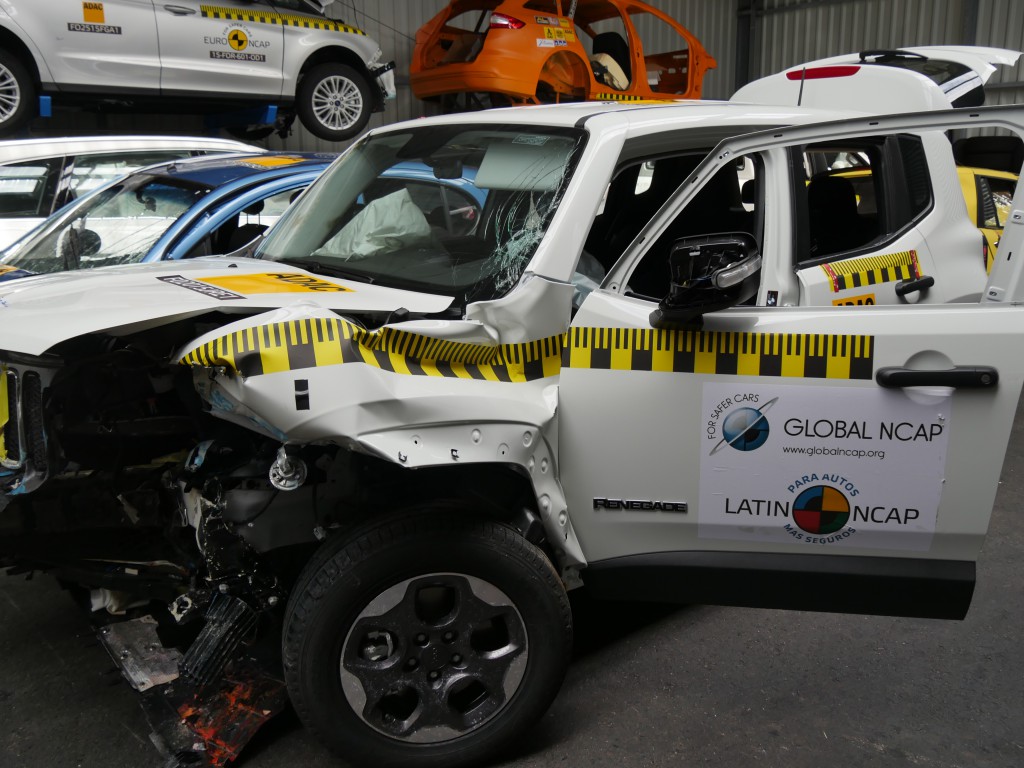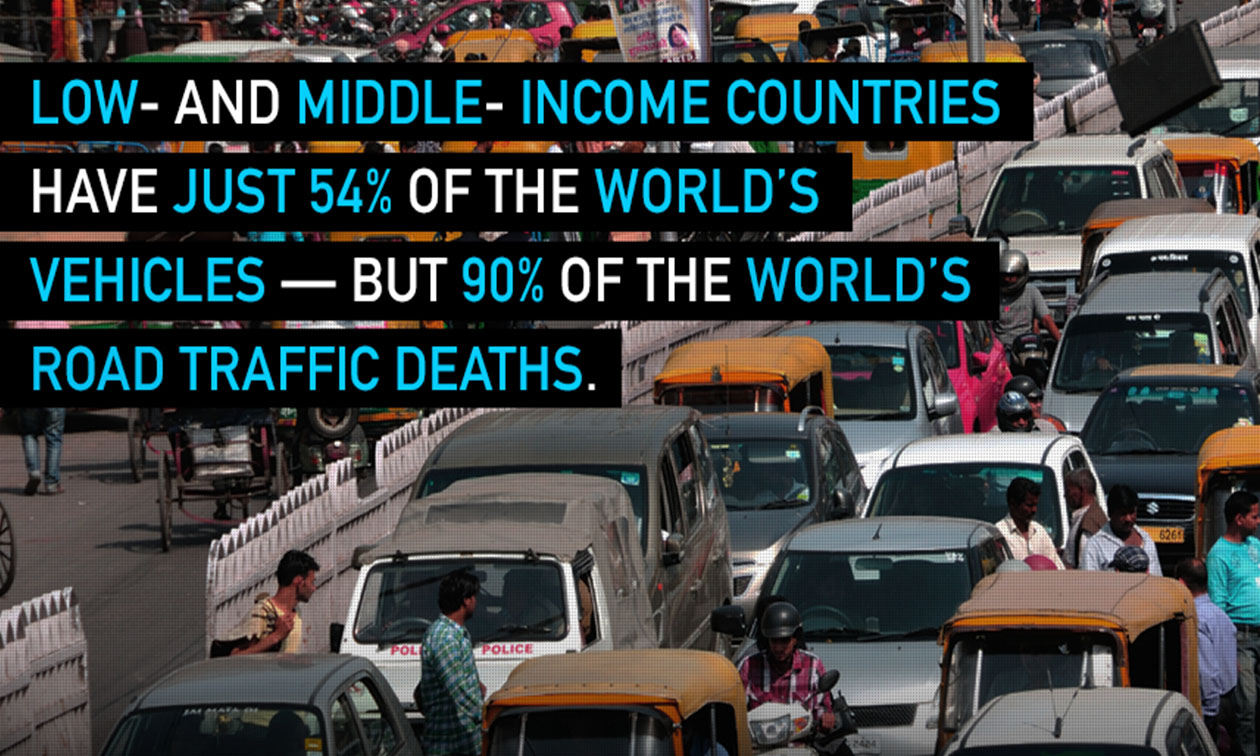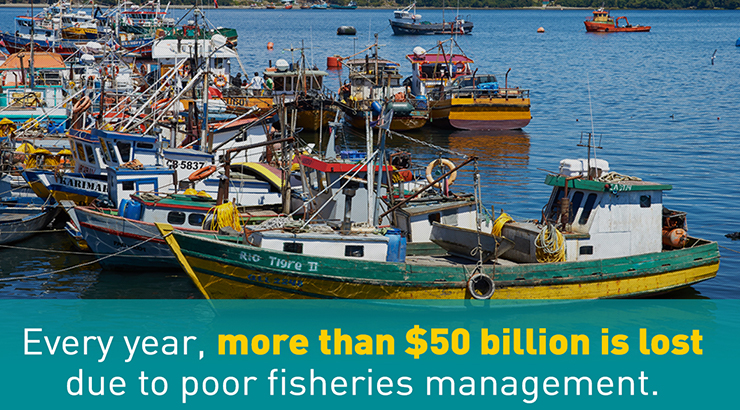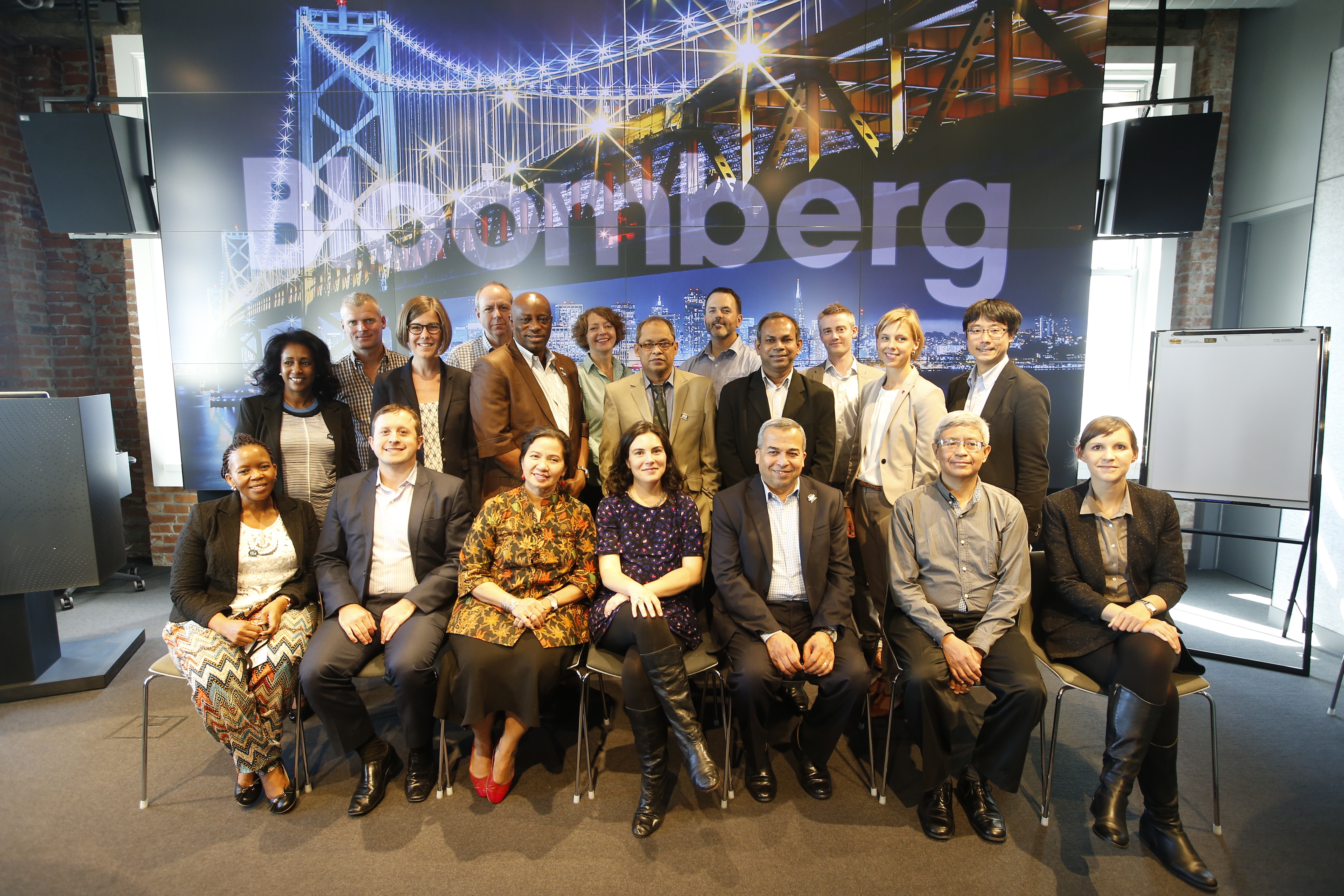
On Climate Change, COP21 and Public Art
December 10, 2015
by Patricia E. Harris, Chief Executive Officer of Bloomberg Philanthropies
World leaders, environment experts and delegates from around the globe are convening in Paris for COP21, the U.N.’s climate summit. Meanwhile, in the center of the city at Place du Panthéon, the public has the chance to encounter Ice Watch, a work by acclaimed artist Olafur Eliasson and scientist Minik Rosing, supported by Bloomberg Philanthropies.
Read more
Building consumer demand for safer cars
December 9, 2015
By Joe Weber, Consumer International
Consumer organisations are increasingly enthusiastic about their role in helping to build demand for safer cars in India, where more than 150,000 people die on the road every year.
As part of the Bloomberg Initiative for Global Road Safety, Bloomberg Philanthropies partnered with the Global New Car Assessment Programme (Global NCAP) to test vehicles sold in India, as well as Latin America and Southeast Asia. NCAP test rates vehicles on a scale from 0-5 stars, and consumers can draw on this information to help them choose safer cars.
Read more
What C40’s Report, Climate Action in Megacities 3.0, Means to COP21
November 24, 2015
By the Bloomberg Philanthropies Environment Team
C40’s new report, Climate Action in Megacities 3.0 contains exciting and encouraging news about the word’s collective fight against climate change – and about the leading role that cities are playing in driving progress. The report, released on November 23, comes just a few weeks before world leaders gather in Paris to try and create a global agreement to limit carbon emissions.
Read moreA Major Milestone for President Obama’s Climate Agenda
November 20, 2015
By Valerie Jarrett, Senior Advisor to President Barack Obama
In August, as part of an ambitious plan to expand renewable energy to households across America, President Obama called on all U.S. mayors to publicly commit to a local climate action plan. The President set a goal of at least 100 U.S. cities signing the Compact of Mayors prior to the Paris UN climate change meeting (“COP”). Today, that goal has not only been met, but surpassed.
Read more

On the ground (and in the water) looking at fisheries reform in the Philippines
November 12, 2015
By Susan Ruffo, Bloomberg Philanthropies Environment Team
Over 1.6 million people in the Philippines make their living on the sea or directly connected to it, and 56 percent of the average protein intake of Filipinos comes from fish. In a country that is growing rapidly, with a population that is increasing and looks to the sea for its sustenance, those numbers emphasize the need to protect the country’s marine resources to ensure the growing population has a bright future.
Read more
My Visit to a Vehicle Testing Facility
October 21, 2015
By Becky Bavinger, Bloomberg Philanthropies Public Health team
To improve vehicle safety worldwide, Bloomberg Philanthropies is partnering with the Global New Car Assessment Programme (Global NCAP) to test vehicles sold in Latin America, Southeast Asia, and India. As part of the Bloomberg Initiative for Global Road Safety, Global NCAP tests and rates vehicles on a 0 to 5 star scale. Many of the cars they assess for these regions receive very poor ratings (3 stars and below). After testing, Global NCAP releases the results to the public and urges manufacturers to voluntarily improve their safety features, while at the same time advising governments on best practice vehicle regulations.
Read more
WHO Report on Global Road Safety Shows that After a Decade of Progress, More Needs to be Done to Reduce Traffic Fatalities
October 19, 2015
By Kelly Larson, Bloomberg Philanthropies Public Health Team
Road safety is an issue that hasn’t gotten nearly the attention it deserves – and it is one of our great opportunities to make a difference. Traffic crashes are the 9th leading cause of death in the world and are the number one cause of death for people from the ages of 15 to 29.
We know this is a public health challenge with clear solutions. And we know what works: safer road infrastructure, smarter traffic laws, and stronger enforcement of those laws. That’s why, since 2007, Bloomberg Philanthropies has been working to help other cities and countries adopt these measures.
Read more
Investing in Sustainable Global Fisheries: Going from Theory to Practice
October 1, 2015
Over the last three years, Encourage Capital has been working with Bloomberg Philanthropies’ Vibrant Oceans Initiative and The Rockefeller Foundation to develop investment strategies that use private capital to help protect and restore global fisheries while improving the livelihoods of the millions of people who rely on those fisheries. To do this, we teamed up with fisheries experts at two non-governmental organizations, Oceana and Rare, to better understand how we might address these problems in both small- and large-scale fisheries at a whole system scale.
Read more
Our Cities, Our Climate: Day 1 in San Francisco, California
October 1, 2015
By Kelly Shultz, Bloomberg Philanthropies Environment Team
Today in San Francisco, California we welcomed 19 city sustainability directors from around the world to launch the Our Cities, Our Climate international exchange program in partnership with the U.S. Department of State. As part of our Sustainable Cities initiative, we partnered with the U.S. Department of State to accelerate local climate efforts and to recognize the importance of city climate action. As the source of 70 percent of emissions, what cities do individually – and in union – to address climate change can have a global impact.
Read more
Addressing Climate Change: Cities Lead The Way
September 25, 2015
By Antha N. Williams, Bloomberg Philanthropies Environment Team
Climate change has no borders. It affects every region, every country and every community on the planet. So, how do we gather the will needed to address global climate change? The answer may be more local than you think.
This week, the United Nations ramps up climate change discussions through the expected adoption of the Sustainable Development Goals, in particular, SDGs 7, 11 and 13 which promote strong action on climate change, sustainable cities and clean energy for all.
Read more